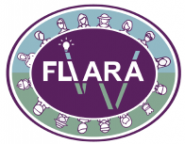Insights from the ongoing FLIARA project, originally detailed in a Slovenian report by researchers from the University of Ljubljana’s Faculty of Arts, highlight the crucial role of women in driving sustainable rural development across Europe. This three-year initiative (2023–2025), funded by the European Union’s Horizon Europe program, aims to identify, encourage, and support diverse innovative practices led by women in agriculture and rural areas.
The FLIARA project brings together a significant consortium of fifteen partners from nine European countries, with coordination led by the University of Galway in Ireland. Slovenia’s active participation comes from the University of Ljubljana’s Faculty of Arts, where a team led by Dr. Barbara Lampič, including researchers Dr. Irma Potočnik Slavič, Sara Mikolič, and Lea Rebernik from the Department of Geography, and Dr. Darja Kobal Grum and Dr. Eva Boštjančič from the Department of Psychology, contributes to this vital research.
Unpacking Women-Led Innovations
During its first year (2023), the project established theoretical foundations and explored the influence of women in fostering innovations for a sustainable future in agriculture and rural areas. A key focus was visualising the future of European agriculture and identifying the innovations and women’s roles within them necessary to achieve these visions.
In Slovenia, this research included a case study in the peri-urban rural area of LAS Srce Slovenije (encompassing the municipalities of Dol pri Ljubljani, Kamnik, Litija, Lukovica, Moravče, and Šmartno pri Litiji). Workshops with local participants generated 11 future visions for the region, including:
- Food self-sufficient countryside: Emphasising increased interest in agricultural production among youth, securing land, and restoring the prestige of farming.
- Engaged and vibrant countryside: Fostering active local community leadership, facilitating local connections, and promoting events that encourage participation.
- Digital countryside: Ensuring modern digital infrastructure, targeted digital education, and inter-sectoral collaboration for tailored digital solutions.
- Green ring: Positioning the peri-urban countryside as a green environment offering recreational opportunities, managed sustainably, with a focus on environmental values and heritage.
Identifying Key Innovations and Contributions
Following this, researchers conducted 14 interviews with Slovenian rural development stakeholders to identify innovations supporting these visions over a 15–20 year horizon. This process identified 130 potential innovations (political, economic/technological, social, and environmental), from which 31 were selected for further evaluation. A subsequent online survey assessed women’s potential to contribute to each innovation. Findings indicated that in Slovenia, women primarily contribute to social and economic innovations, facing greater barriers and feeling less competent in political and environmental innovation spheres. However, across the broader project, 180 stakeholders from partner countries saw the most opportunities for women’s contributions in environmental and social innovations and the least in policy-related innovations.
FLIARA’s Community of Practice and Key Events
The year 2024 was dedicated to analysing women’s innovative practices and saw the launch of the FLIARA Community of Practice (CoP) at a European level. In-depth studies were conducted on 200 women-led innovative practices in rural and agricultural settings across 10 countries, including Slovenia. These selected practices cover various aspects of sustainability (economic, environmental, social, and cultural) and represent different rural typologies. Twenty in-depth interviews were conducted with Slovenian innovators, with their stories featured on the project website and in a printed brochure.
The FLIARA CoP aims to facilitate the exchange of experiences and knowledge, networking among women, and collaboration with supporting stakeholders in rural areas. It also seeks to enhance skills in areas women identify as crucial and strengthen their connections. Each partner country selected two national “ambassadors” to play a visible role in project activities and international networking. Slovenia’s ambassadors are Saša Kržič, who leads an innovative economic practice with microgreen cultivation under the “Mikrozelenje Šebenik” brand, and Petra Matos, who addresses local needs through volunteer work with Park Istra.
The project includes four in-person CoP meetings: Galway, Ireland (July 2024); Ljubljana, Slovenia (September 2024); Italy (January 2025); and Sweden (May 2025).
Ljubljana Hosts International FLIARA Meeting
In September 2024, the University of Ljubljana’s Faculty of Arts hosted the second international FLIARA Community of Practice meeting. The two-day event gathered 80 researchers, representatives of innovative rural practices from across Europe, agricultural and rural development policymakers, and other stakeholders. The first day featured diverse speakers addressing various aspects of women’s innovations, including Dr. Milica Antić Gaber on women’s studies, Anton Jagodic on the role of the Chamber of Agriculture and Forestry, Dr. Irma Potočnik Slavič on women’s involvement in LEADER/CLLD, and Dr. Štefan Bojnec on supporting rural innovations from an entrepreneurial perspective. A roundtable featured FLIARA ambassadors, including Slovenia’s Petra Matos and Saša Kržič. Afternoon workshops developed proposals for greater support and advancement of women in agriculture and rural innovation, intended as guidelines for national and European policymakers.
The second day involved an expert excursion to southwestern Slovenia, where participants explored the work of innovative women in local settings, visiting both Slovenian FLIARA ambassadors and the organic farm Gramona in Slovenian Istria. The excursion also included insights into the LAS Barje z zaledjem project and hospitality from the Ajda Rural Women’s Association.
For further reading on the FLIARA project’s progress and the “Breaking Barriers” theme, you can explore a related article:
Breaking barriers: how women are transforming agriculture and rural innovation. Published in the 26th issue of the European Public Mosaic (EPuM). Open Journal on Public Service on May 21, 2025. https://www.gencat.cat/eapc/epum/N26/index.html#page=107



